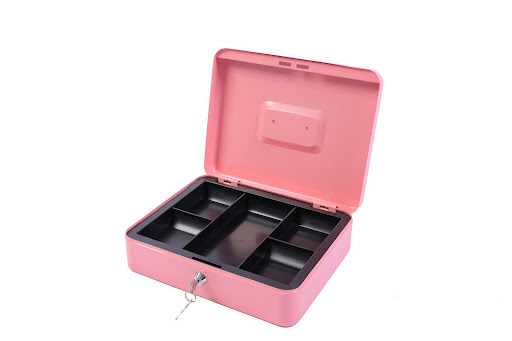When it comes to safeguarding your valuables, especially cash, choosing the right storage solution is crucial. Two popular options that often come up in discussions are lockable cash boxes and traditional safes. Both offer a level of security, but they serve different purposes and suit different needs. In this article, we’ll explore the features, benefits, and drawbacks of each option, helping you determine which one is best for your situation.
Understanding Lockable Cash Boxes
A lockable cash box is a compact storage solution designed primarily for cash and small valuables. Typically made from metal or durable plastic, these boxes come with built-in locks, ensuring that your money is safe from unauthorized access. They are commonly used in retail settings, at events, or in homes for organizing cash.
Features of Lockable Cash Boxes
- Portability: Most lockable cash boxes are lightweight and easy to transport, making them ideal for temporary setups, such as fairs or markets.
- Organizational Compartments: Many cash boxes feature compartments for coins, bills, and receipts, allowing for better organization.
- Affordability: Generally, cash boxes with locks are more budget-friendly than traditional safes, making them accessible for individuals and small businesses.
Drawbacks of Lockable Cash Boxes
- Limited Security: While lockable cash boxes offer some protection, they are not as secure as traditional safes. They can be more vulnerable to theft or tampering, especially if the cash box is made of lighter materials.
- Size Constraints: Cash boxes have limited space and may not be suitable for larger valuables or significant amounts of cash.
Exploring Traditional Safes
Traditional safes, on the other hand, are heavy-duty storage solutions designed for maximum security. They come in various sizes and materials, with features that can withstand fire, water, and forced entry. These safes are commonly used in homes, businesses, and financial institutions to protect important documents, cash, and other valuables.
Features of Traditional Safes
- Robust Security: Traditional safes often have advanced locking mechanisms, including electronic keypads, combination locks, and biometric access, making them highly secure.
- Durability: Most safes are constructed from heavy steel, providing significant resistance against burglary and damage.
- Fire and Water Resistance: Many modern safes are designed to withstand fire and flooding, offering protection for important documents and valuables.
Drawbacks of Traditional Safes
- Cost: Traditional safes can be significantly more expensive than lockable cash boxes, especially those with advanced security features.
- Weight and Installation: Safes are typically heavier and may require professional installation or a permanent location within your home or business.
Comparing Use Cases
When to Choose a Lockable Cash Box
A secure cash box is an excellent choice if you need a simple, affordable solution for short-term cash management. Here are some scenarios where a cash box may be the ideal option:
- Temporary Events: If you’re running a fundraiser, garage sale, or other event where cash transactions occur, a cash box can help you keep your money organized and secure.
- Small Business Use: Retailers who handle cash transactions daily can benefit from the portability and organization features of a cash box with lock.
- Home Organization: If you want to keep your cash or small valuables organized at home without the need for heavy-duty security, a lockable cash box can meet your needs.
When to Choose a Traditional Safe
Traditional safes are more suited for long-term storage and higher-value items. Consider a traditional safe if:
- You Need Maximum Security: If you have substantial cash reserves, important documents, or valuable items like jewelry, a safe provides the best protection against theft and damage.
- You Require Fire Protection: For individuals or businesses that need to safeguard vital documents or data, investing in a fireproof safe is essential.
- You Want a Permanent Solution: If you’re looking for a long-term storage option that can accommodate larger items, a traditional safe is more appropriate.
Conclusion
Choosing between a lockable cash box and a traditional safe ultimately depends on your specific needs and circumstances. If you require a portable, affordable solution for short-term cash management, a cash box can serve you well. However, if your priorities lean toward long-term security and protection for valuable items, investing in a traditional safe is the better choice.
Regardless of your decision, it’s essential to assess your unique situation, including the types of items you plan to store, your budget, and your security needs. Understanding the differences between these storage options will empower you to make an informed decision, ensuring that your valuables remain safe and secure for years to come.



